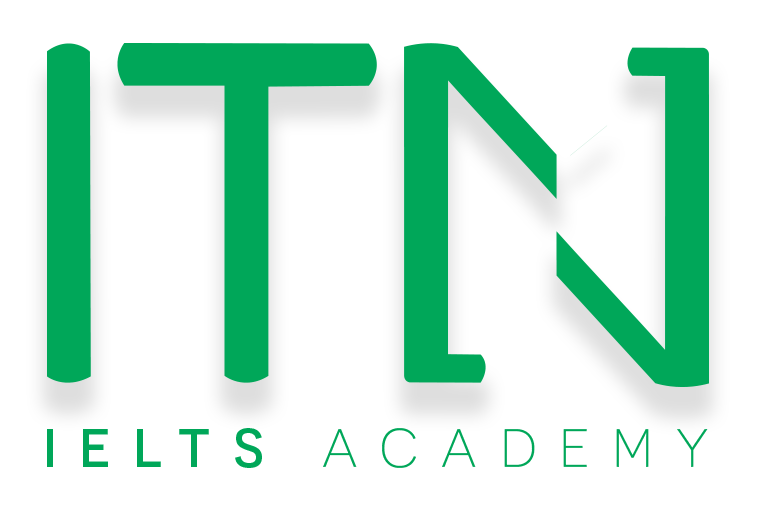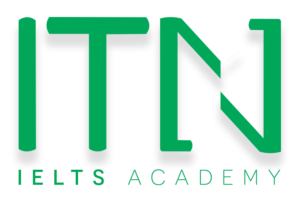
Nếu bạn chưa biết thì chủ đề Study/ Work là chủ đề gần như chắc chắn sẽ gặp trong IELTS Speaking Part 1. Vậy nên, trong bài viết hôm nay, Ms Kiều Anh từ IELTS Trang Nguyễn sẽ hướng dẫn bạn cách để xử lý phần này sao cho mượt nhất có thể nhé!
Trước hết, hãy cùng xem qua một số câu hỏi mẫu mà chúng mình sẽ gặp trong Speaking Part 1 chủ đề work/study nhé! Các câu hỏi dưới đây được lấy từ bộ đề dự đoán IELTS Speaking quý 4 năm 2019.
CÂU HỎI CHỦ ĐỀ WORK
- Do you work or study?
- What did you do on the first day of your job?
- What specific things do you do on your job?
- What do you like most about your job?
- Why did you choose that job?
- Would you recommend that job to others?
- Do you think this job has a bright future?
- What are the most interesting and the difficult part of your job?
CÂU HỎI CHỦ ĐỀ STUDY
- What’s your major?
- Do you like it?
- Will you change it if you have a chance ?
- Which major will you change it to?
- Is it different from what you had in mind?
- Why did you choose that major?
Công thức chung cho các câu hỏi trong Part 1 đó là câu trả lời của bạn nên dài từ 2-3 câu. Bản chất của các câu hỏi trong Part 1 chỉ như xã giao bình thường, nên không cần trả lời quá dài.
Tham khảo:
45 từ vựng chủ đề Study cho IELTS Speaking và Writing
30 từ vựng quan trọng chủ đề Work
HƯỚNG DẪN TRẢ LỜI
1.Trường hợp bạn là học sinh
Giám khảo hỏi bạn Do you work or study? thì bạn tránh việc trả lời 1 câu I am a student mà phải thêm vào:
- Chuyên ngành của tôi là… ? My major at school/ university/ college is ……..
- Tôi lựa chọn chuyên ngành đó vì … ? One of the biggest reasons why I chose that major is that……….
Không cần giám khảo hỏi, bạn nên tự trả lời luôn vào câu trả lời của mình
Một số tips có thể áp dụng:
– Ở part 1, bạn càng trả lời dài (2-3 câu là đủ), nhiều ý sẽ khiến số lượng câu hỏi cho phần 1 ít đi, có khả năng sẽ tránh được Topic khó
– Trả lời đủ ý, sẽ khiến giám khảo có cơ sở để cho Band điểm ngay trong Part 1, tránh qua Part 2 lại gặp đề khó khiến tụt band điểm.
2. Trường hợp bạn đi làm và yêu thích công việc
- It gives me the chance to meet different people/ learn practical skills (communication/ problem-solving/ money management skills…) and experience/ travel to different places/ explore different cultures: Nó mang lại cho tôi cơ hội gặp gỡ những người khác nhau / học các kỹ năng (kỹ năng giao tiếp/ giải quyết vấn đề/ quản lý tiền bạc,…) và kinh nghiệm nghiệm thực tế / du lịch đến những nơi khác nhau / khám phá các nền văn hóa khác nhau.
- I chose this job because I have a passion for …./ I’m really interested in ….: Tôi chọn công việc này bởi vì tôi có niềm đam mê cho …/ tôi thực sự thích …
- It gives me the chance to work from home, so I can have more time for my family. I don’t need to go to the office every day, which is great because I don’t want to waste hours getting stuck in traffic jams on the way to and from work: Nó cho tôi cơ hội làm việc tại nhà, vậy nên tôi có nhiều thời gian cho gia đình hơn. Tôi không cần đến công sở mỗi ngày, điều này thật là tuyệt vì tôi không muốn phí hàng giờ bị kẹt xe trên đường đi làm và về nhà.
- My job is great. I’ve learned an enormous amount over the past 2 years. I’ve learned how to deal with difficult customers more effectively/ how to manage my budget better/ how to work as a team/ how to make wiser decisions/ how to think more logically/ how to cope with stress more effectively/…: Công việc của tôi rất tuyệt vời. Tôi đã học được rất nhiều trong vòng 2 năm trở lại đây. Tôi đã học cách làm việc với các khách hàng khó tính sao cho hiệu quả hơn/ làm sao để quản lý tài chính tốt hơn/ làm việc theo nhóm/ ra quyết định khôn khéo hơn/ suy nghĩ logic hơn/ đối phó với căng thẳng hiệu quả hơn.
2. Trường hợp bạn đi làm và không yêu thích công việc
- It’s too demanding. I have to work at least 14 hours a day, which makes me stressed and exhausted: Nó quá đòi hỏi. Tôi phải làm việc ít nhất 14 giờ một ngày, điều đó làm tôi căng thẳng và kiệt sức.
- I have no passion for …, I chose it just because it allows me to work from home/ it’s quite flexible/ it’s secure/ my parents wanted me to pursue this career path: Tôi không có niềm đam mê cho …, tôi đã chọn nó chỉ vì nó cho phép tôi làm việc ở nhà / nó khá linh hoạt / nó an toàn / cha mẹ tôi muốn tôi theo đuổi con đường sự nghiệp này.
- I don’t love what I’m doing. You know, going to the office every day, doing the same sequence of tasks over and over again, oh, it’s so boring. I’m thinking of quitting to switch to a job that is a bit more challenging and will make me more excited: Tôi không thích những gì tôi đang làm. Bạn biết đấy, đi đến văn phòng mỗi ngày, làm cùng một chuỗi các công việc lặp đi lặp lại, ồ, thật là nhàm chán. Tôi đang nghĩ đến việc bỏ việc để chuyển sang một công việc thử thách hơn một chút và sẽ khiến tôi phấn khích hơn.
- It cannot secure me a stable income/ the paycheck barely covers my bills/ I’m underpaid and overworked: Nó không thể đảm bảo cho tôi một thu nhập ổn định / tiền lương hầu như không đủ chi trả các hóa đơn của tôi / tôi làm việc lương thì thấp mà phải làm việc quá sức.
- I feel like I’m unappriciated/ my work goes unnoticed: Tôi cảm thấy như tôi không được coi trọng / công việc của tôi không được chú ý.
MẪU TRẢ LỜI SPEAKING PART 1
1. Chủ đề Study (Sưu tầm của thầy Đặng Trần Tùng)
Q1: Are you a student or are you working?
I’m currently a senior at X University, which is one of the top schools in the nation. Admission is incredibly competitive so I’m very proud of being a student here.
Senior (noun) final year university student
Q2: What are you studying?
Well, I’m majoring in Accountancy, so as you can guess, I deal a lot withnumbers and figures day in, day out. It can be overwhelming at times, but I’d like to think that I have a knack for mathematics and calculations so it’s okay.
Day in, day out (phrase) continuously or repeatedly over a long period of time.
Have a knack for (phrase) to be exceptionally proficient at (doing) something
Q3. Why did you choose to study that major?
There are many reasons for my choice. As I’ve already explained about my long-term interest in Accountancy, another reason could be because of accountancy itself, since I’ve found my personalities have changed in a positive way, you know, like I’ve become more patient and skillful.
Q4. What’s the most difficult part of your study?
Well, for the most part, I’d say it’s the workload. I mean there are so many assignments and students are always under a lot of pressures from deadlines. But on the other hand, exams are a piece of cake. They are quite predictable, and I can pretty much breeze through them with a bit of revision.
*pretty much = almost
A piece of cake (idiom) very easy
Breeze (through) (verb) to easily complete or win something
Q5: What do you like most about your school?
I guess the aspect I find most enjoyable is the environment. I mean, I get to study in English-speaking classrooms and the facilities are top-notch; I mean, all the classrooms are air-conditioned and equipped with projectors. My friends and teachers are all very nice as well, so all in all it’s a great place to study.
top-notch (adj) excellent
2. Chủ đề Work
Q1: Are you a student or are you working?
Well, for the past couple of years, I’ve been working as an auditor at KPMG, which is among the top 4 auditing firms in the world. I love my job, and I think it’s a very interesting line of work.
Line of work (phrase) the work that a person does regularly in order to earn money
Q2: What do you like about your job?
Well I guess the thing I like most about my job is the salary. I make what I’d consider is a lucrative income, which means not only is it enough to cover my bills, but there’s also some extra to spend on whatever I want. So on payday, I often treat myself to a meal at a high-end restaurant or splurgeon a nice shirt.
Lucrative income (phrase)
High-end (adj) the most sophisticated, and typically the most expensive product in a line
Splurge on something(phrase) to spend a lot of money on someone or something
Q3: What do you dislike about your job?
You know, I’d have to say the overwhelming workload is something I am not a fan of. I mean, I’ve got a very hectic schedule, which means I’m always up to my ears in deadlines. That leaves me with very little quality time for family and friends. In the future, I might look into another job that is a bit less stressful.
Overwhelming (adj) very intense
Hectic (adj) busy
Up to my ears in something (phrase) busy doing something
Quality time (phrase) time during which one dedicates oneself to a person or activity
Q4: What do you do after work?
Well, when we get off work, my colleagues and I usually hit the bar and grab a couple of drinks and maybe a bite to eat if we’re feeling up to it. It’s great fun, and a fantastic way to unwind.
Hit the bar (phrase) to go out, to go for a few drinks
Grab a bite to eat (phrase) get something to eat
Up to (doing) something (phrase) well enough, or good enough to do something
Unwind (verb) relax
Q5: Do you miss being a student?
I surely will miss my student life once I get involve in the workplace. For me I think when I’m a student, at least I have someone guide me, whereas at work mostly you must guide yourself. The academic environment appears to be a comfort zone for me, while I’m sure I’ll struggle with fitting in the working environment.
To get involve in (v) to become a part of (an organization)
To fit in (v) to become suitable or appropriate for Sth or SO





